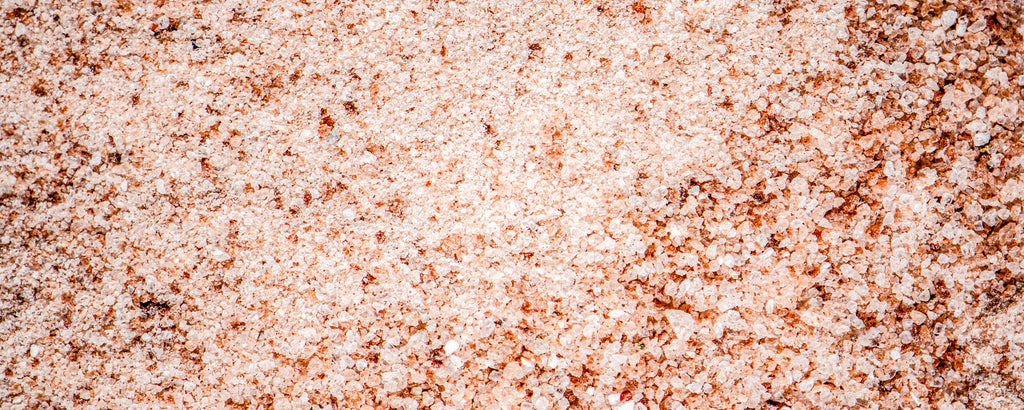The Benefits of Exfoliation: A Complete Guide
What is exfoliation?
Exfoliation is the process of removing dead cells from the surface of the skin. Dead skin cells can make skin look dull and clog pores, leading to acne and other skin problems. Exfoliation can help unclog pores, improve skin texture, and reduce the appearance of fine lines and wrinkles.

So how does exfoliation work? Our skin naturally sheds dead skin cells to make room for new ones. However, as we age, our skin's natural process of exfoliation slows down. This means that dead skin cells can build up on the surface of the skin leading to a range of problems. By exfoliating regularly, you can speed up the skin's natural exfoliation process and improve its overall health. To learn more, we have an article that explains the different layers of the skin.
The benefits of exfoliation are numerous. Exfoliation can help prevent acne by unclogging pores and removing dead skin cells that can contribute to acne. Rashes. Exfoliation can also brighten skin tone, giving skin a fresh, youthful glow. Finally, exfoliation can stimulate the production of collagène, which can help reduce the appearance of fine lines and wrinkles.
Types of exfoliation in cosmetics
There are three main types of exfoliants used in cosmetics: physical exfoliants, chemical exfoliants and enzymatic exfoliants.
Physical exfoliants are products that contain small particles that physically remove dead skin cells. These particles can be made from a variety of materials, including sugar, salt, or finely ground nut shells. Physical exfoliants can be effective in removing dead skin cells and improving skin texture, but they can also be harsh on the skin if used too often or if the particles are too large.
Chemical exfoliants, on the other hand, use acids to dissolve dead skin cells. Acids commonly used in chemical exfoliants include alpha hydroxy acids (AHA) and beta hydroxy acids (BHA). AHAs are water-soluble acids that are effective in treating sun-damaged skin and improving overall skin texture. BHAs, on the other hand, are oil-soluble acids that are best suited for oily skin.
Enzyme scrubs use natural enzymes, such as papain or bromélaïne, to dissolve dead skin cells. Enzyme exfoliators are gentle on the skin and can be effective in brightening skin tone and improving overall skin health.
When choosing an exfoliator, it's important to consider your skin type and individual needs. Physical exfoliants may be too harsh for sensitive skin, while chemical exfoliants may be too strong for dry skin. Enzymatic exfoliants are a good option for sensitive skin, but may not be as effective as physical or chemical exfoliants in removing dead skin cells. Here is an interesting resource to help you choose your exfoliant.
How often should you exfoliate?
Exfoliation can be a great way to improve the health and appearance of your skin, but it's important to exfoliate in moderation. Exfoliation can lead to irritation, redness and dryness of the skin, which can exacerbate existing skin problems. So how often should you exfoliate?
The answer to this question depends on a variety of factors, including your skin type, the type of exfoliator you use, and your individual needs. Generally, it is recommended to exfoliate no more than once or twice a week. However, if you have sensitive skin or use a particularly strong exfoliator, you may need to exfoliate less frequently.
It's also important to pay attention to how your skin reacts to exfoliation. If you notice any redness, irritation, or dryness after exfoliation, you may be exfoliating too much and need to reduce the frequency of your exfoliation. Don't forget good hydrate between exfoliations !
Tips for a good exfoliation
Exfoliation can be a great way to improve the health and appearance of your skin, but it's important to exfoliate safely to avoid skin irritation and other issues. Here are some tips for safe exfoliation:
- Choose the right exfoliator for your skin type. If you have sensitive skin, opt for a gentle exfoliator, such as an enzyme exfoliator. If you have oily skin, a chemical exfoliant may be more effective.
- Do not over exfoliate. Exfoliating too often or too harshly can lead to skin irritation, dryness and redness. Stick to exfoliating no more than once or twice a week and pay attention to how your skin reacts.
- Be gentle. When exfoliating, do not apply too much pressure. Rubbing too hard can lead to irritation and skin damage.
- Follow with a crème hydratante. After the exfoliation, be sure to moisturize your skin to avoid dryness and irritation.
- Avoid the eye area. The skin around the eyes is very delicate, so it is important to avoid exfoliating this area. Instead, use a gentle eye cream to keep the skin around your eyes hydrated and healthy.
By following these tips, you can safely and effectively incorporate exfoliation into your skincare routine and achieve smoother, healthier-looking skin.
In conclusion, exfoliation is an important step in any skincare routine, and cosmetics offer a variety of exfoliating options to choose from. By understanding the different types of exfoliators and their benefits, you can choose the right exfoliator for your skin and achieve a smoother, healthier complexion.








Leave a comment